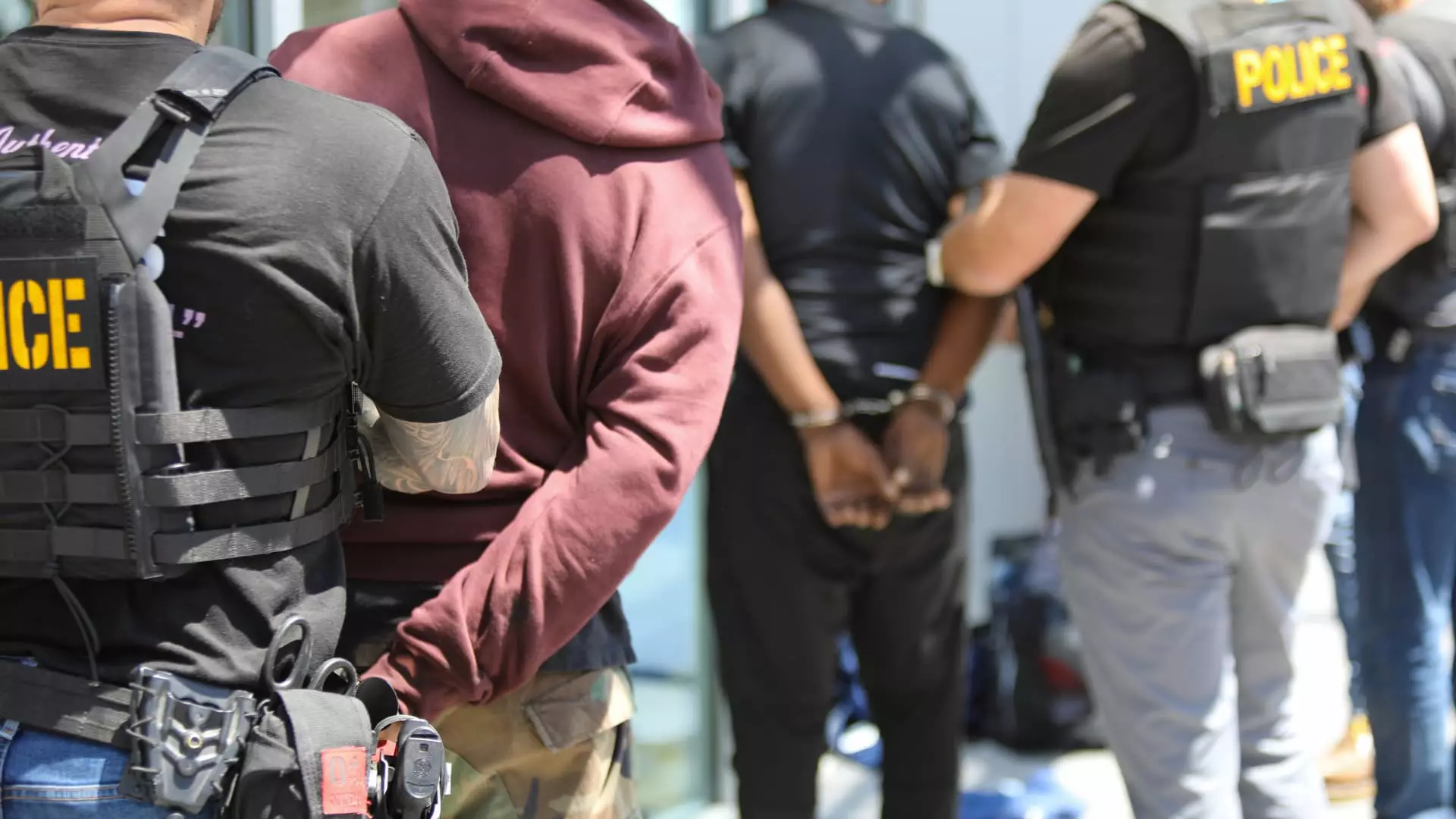In an extraordinary initiative that has remarkably united various law enforcement agencies, a nationwide law enforcement blitz against organized retail crime recently led to over 1,450 arrests across 28 states. This groundbreaking operation, spearheaded by the Cook County regional organized crime task force in Illinois, involved an impressive collaboration of more than 100 jurisdictions and numerous major retailers such as Home Depot, Macy’s, Target, and Walgreens. This campaign is particularly noteworthy not only for its scale but also for its revelation of an ongoing epidemic plaguing American retailers—a plague many have ignored for too long.
The rigorous focus and strategic coordination between law enforcement and retail partners underscore an essential truth: crime does not flourish in an environment of accountability. Cook County Sheriff Tom Dart emphasized this connection, explaining that when authorities treat crime with seriousness, deterrence occurs. In a nation increasingly perceived as tolerant of petty crime, it’s about time we recalibrate our approach to law enforcement to protect both businesses and consumers.
The Rising Tide of Organized Retail Crime
Organized retail crime, defined as coordinated theft operations conducted by groups with the explicit goal of reselling stolen merchandise, has surged alarmingly in scale and frequency over recent years. The National Retail Federation has revealed a staggering 93% increase in incidents of shoplifting since 2019—a statistic that speaks volumes to the growing audacity of these criminals. The associated monetary losses have also soared, nearly doubling to a 90% increase.
Critics have pointed to lax enforcement measures and insufficient felony thresholds as contributing factors enabling criminals. Indeed, the legal framework around retail theft can often act as a permissive force, suggesting that theft might be an acceptable risk within certain thresholds. It’s an indictment of a system that has been too lenient for too long, leading to an audacious increase in crimes that disrupt neighborhoods and ultimately harm the economy.
Legal Reforms as a Catalyst for Change
The newly appointed Cook County State’s Attorney, Eileen O’Neill Burke, has taken a commendable stance by pledging to pursue felony retail theft charges more aggressively. By lowering the threshold for felony charges from $1,000 to $300 for certain repeat offenders, Burke has transformed the legal landscape regarding retail theft. This shift recognizes the reality that even smaller thefts, when aggregated, can yield devastating financial consequences for businesses and, by extension, consumers.
In her initiative, Burke aims to launch coordinated efforts to share intelligence gained over the course of the operation, acknowledging that understanding the networks behind organized retail crime is vital to dismantling them effectively. This highlights an essential truth: collaboration and communication among law enforcement bodies are paramount in tackling such pervasive societal issues.
Collaboration: The Key to Effective Solutions
The responses from participating retailers illustrate the power of collaboration. Companies like Ulta Beauty and Walgreens have actively engaged with law enforcement, recognizing the unprecedented challenge posed by organized retail crime. Effective partnerships are key; systemic issues cannot be addressed in isolation. The importance of sharing information and strategizing collectively cannot be understated; retailers not only want to protect their profits but also to uphold the consumer trust that sustains their businesses.
As emphasized by industry leaders, such as Ulta’s Loss Prevention Senior Vice President Dan Petrousek, participation by retailers is crucial not only for their profitability but for the overall health of the retail industry. By contributing crucial data regarding theft incidents, they can assist in a broader fight against organized crime, shifting the burden of policing back from individual businesses to the collective responsibility of society.
The Road Ahead: A Call to Action
While this operation symbolizes hope for a turning tide against retail crime, it’s clear that much more work lies ahead. This movement can ignite a larger dialogue on the support necessary for law enforcement and the legal reforms needed to ensure a formidable response to retail theft. As law enforcement tackles this rampant issue, we must stand firmly behind the principles of accountability, collaboration, and a robust legal framework that empowers them to make significant strides in U.S. retail security.
In pursuit of a society where crime fears retribution, it is time for all stakeholders—government, law enforcement, and business leaders—to commit genuinely to actionable strategies. Schools of thought that suggest leniency for lesser crimes need reevaluation; public safety should never be compromised for the sake of misguided compassion. It is high time we draw a hard line in the sand.

